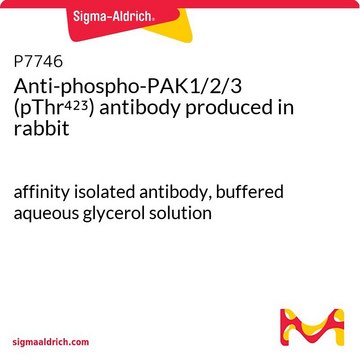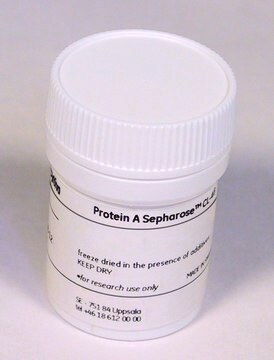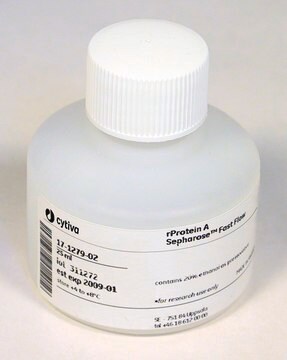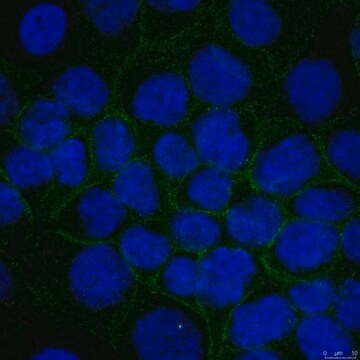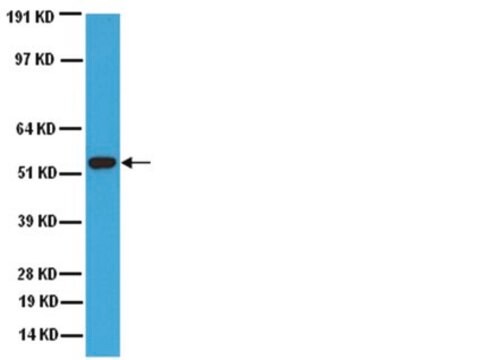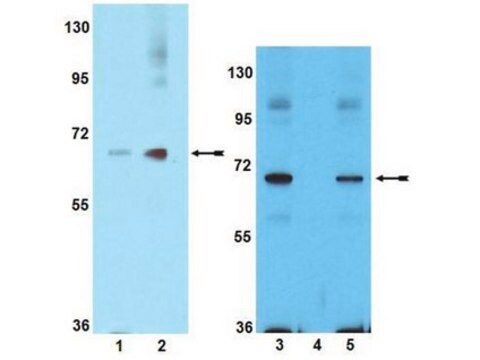P3237
Anti-phospho-PAK1 (pThr212) antibody, Mouse monoclonal
clone PK-18, purified from hybridoma cell culture
About This Item
Produits recommandés
Source biologique
mouse
Conjugué
unconjugated
Forme d'anticorps
purified from hybridoma cell culture
Type de produit anticorps
primary antibodies
Clone
PK-18, monoclonal
Forme
buffered aqueous solution
Poids mol.
antigen 68 kDa
Espèces réactives
human, mouse, rat
Concentration
~2 mg/mL
Technique(s)
immunocytochemistry: suitable
indirect ELISA: suitable
microarray: suitable
western blot: 0.2-0.4 μg/mL using a whole extract of transfected and activated COS-7 (monkey kidney) cells expressing phosphorylated PAK1
Isotype
IgG1
Numéro d'accès UniProt
Conditions d'expédition
dry ice
Température de stockage
−20°C
Modification post-traductionnelle de la cible
phosphorylation (pThr212)
Informations sur le gène
human ... PAK1(5058)
mouse ... Pak1(18479)
rat ... Pak1(29431)
Description générale
Monoclonal Anti-Phospho-PAK1 (pThr212) reacts specifically with human PAK1 phosphorylated at Thr212 (68 kDa), and does not detect the unphosphorylated epitope.
Immunogène
Application
- enzyme linked immunosorbent assay (ELISA)
- immunoblotting
- immunohistochemistry
Actions biochimiques/physiologiques
Forme physique
Clause de non-responsabilité
Vous ne trouvez pas le bon produit ?
Essayez notre Outil de sélection de produits.
Code de la classe de stockage
10 - Combustible liquids
Classe de danger pour l'eau (WGK)
WGK 3
Point d'éclair (°F)
Not applicable
Point d'éclair (°C)
Not applicable
Certificats d'analyse (COA)
Recherchez un Certificats d'analyse (COA) en saisissant le numéro de lot du produit. Les numéros de lot figurent sur l'étiquette du produit après les mots "Lot" ou "Batch".
Déjà en possession de ce produit ?
Retrouvez la documentation relative aux produits que vous avez récemment achetés dans la Bibliothèque de documents.
Notre équipe de scientifiques dispose d'une expérience dans tous les secteurs de la recherche, notamment en sciences de la vie, science des matériaux, synthèse chimique, chromatographie, analyse et dans de nombreux autres domaines..
Contacter notre Service technique